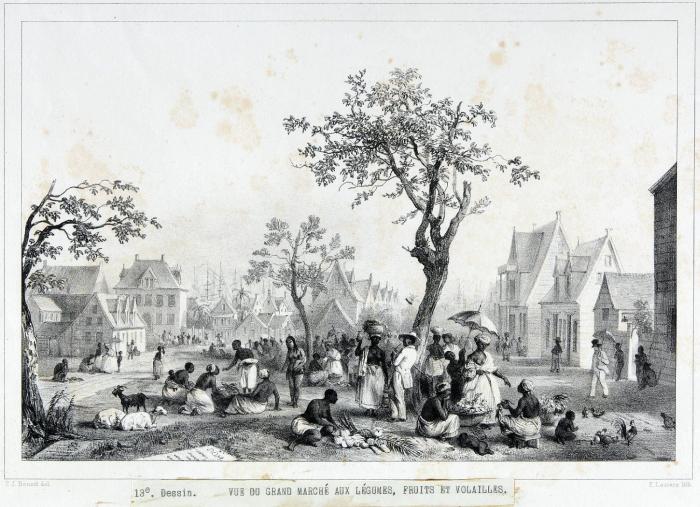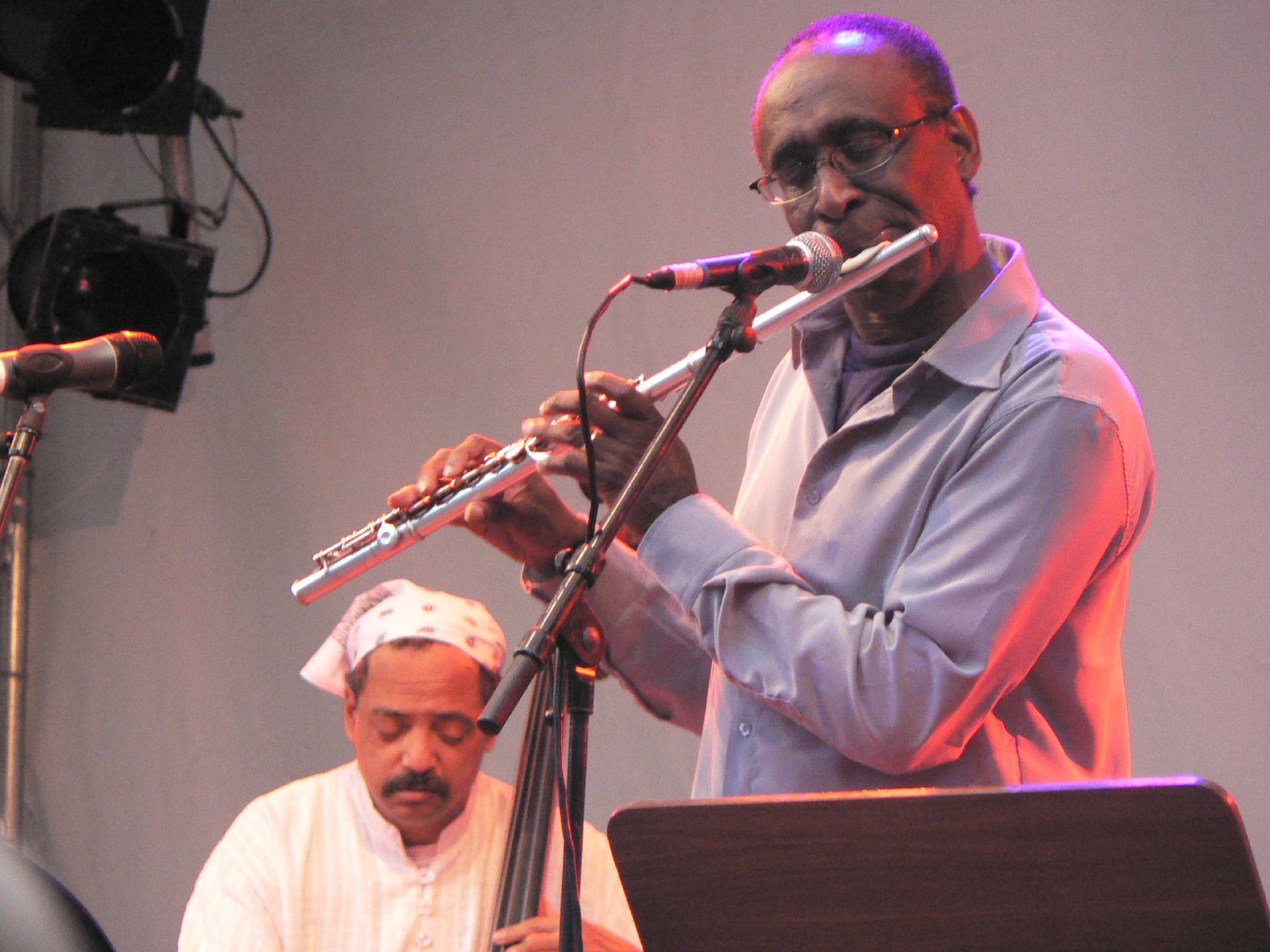|
Eddy Snijders
Richenel Edgar Snijders, commonly known as Eddy Snijders (12 May 1923 — 19 January 1990) was a Surinamese composer, conductor, and flute player. He is considered as an innovator of Surinamese music, since he incorporated local traditions, including kaseko, to symphonic music. He made the arrangement of the Surinamese national anthem. Snijders was born in Paramaribo Paramaribo ( , , ) is the capital city, capital and largest city of Suriname, located on the banks of the Suriname River in the Paramaribo District. Paramaribo has a population of roughly 241,000 people (2012 census), almost half of Suriname's p .... His father was a musician, and several of his brothers became musicians, but he did not get formal musical education. He became a professional musician with the Military Chapel of Suriname and later also its director. Snijders also organized a youth orchestra where many Surinamese musicians started their career. In 1947, Snijders married Olga Ooft. The family had nin ... [...More Info...] [...Related Items...] OR: [Wikipedia] [Google] [Baidu] |
Paramaribo - Zeelandiaweg - Buste Eddy Snijders (door Erwin De Vries, 2003) 20160917 Detail
Paramaribo ( , , ) is the capital and largest city of Suriname, located on the banks of the Suriname River in the Paramaribo District. Paramaribo has a population of roughly 241,000 people (2012 census), almost half of Suriname's population. The historic inner city of Paramaribo has been a UNESCO World Heritage Site since 2002. Name The city is named for the Paramaribo tribe living at the mouth of the Suriname River; the name is from Tupi–Guarani ''para'' "large river" + ''maribo'' "inhabitants". History The name Paramaribo is probably a corruption of the name of a native village, spelled Parmurbo in the earliest Dutch sources. This was the location of the first Dutch settlement, a trading post established by Nicolaes Baliestel and Dirck Claeszoon van Sanen in 1613. English and French traders also tried to establish settlements in Suriname, including a French post established in 1644 near present-day Paramaribo. All earlier settlements were abandoned some time before t ... [...More Info...] [...Related Items...] OR: [Wikipedia] [Google] [Baidu] |
Suriname
Suriname, officially the Republic of Suriname, is a country in northern South America, also considered as part of the Caribbean and the West Indies. It is a developing country with a Human Development Index, high level of human development; its economy of Suriname, economy is heavily dependent on its abundant Natural resource, natural resources, namely bauxite, gold, petroleum, and Agriculture, agricultural products. Suriname is a member of the Caribbean Community (CARICOM), the United Nations, the Organisation of Islamic Cooperation and the Organization of American States. Situated Tropics, slightly north of the equator, over 90% of its territory is covered by rainforest, List of countries by forest area (percentage), the highest proportion of forest cover in the world. Borders of Suriname, Suriname is bordered by the Atlantic Ocean to the north, French Guiana to the east, Guyana to the west, and Brazil to the south. It is List of South American countries by area, the smalles ... [...More Info...] [...Related Items...] OR: [Wikipedia] [Google] [Baidu] |
Kaseko
Kaseko is a musical genre from Suriname. It is a fusion of numerous popular and folk styles derived from Africa, Europe and the Americas. The genre is rhythmically complex, with percussion instruments including skratji (a very large bass drum) and snare drums, as well as saxophone, trumpet and occasionally trombone. Singing can be both solo and choir. Songs are typically call-and-response, as are Creole folk styles from the area, such as kawina. Etymology The term ''Kaseko'' may be derived from '' Kasékò'', a Guianan creole dance. History Kaseko emerged from the traditional Afro-Surinamese kawina music, which was played since the beginning of 1900 by street musicians in Paramaribo. It evolved in the 1930s during festivities that used large bands, especially brass bands, and was called ''Bigi Poku'' ("big drum music"). In the late 1940s, jazz, calypso and other importations became popular, while rock and roll soon left its own influence in the form of electrified inst ... [...More Info...] [...Related Items...] OR: [Wikipedia] [Google] [Baidu] |
God Zij Met Ons Suriname
"" (; "God be with our Suriname"), or "" ("Rise, countrymen" in Sranan Tongo), is the national anthem of Suriname. It has two verses: the first in Dutch and the second in Sranan Tongo. History The original version of the anthem was written by Cornelis Atses Hoekstra in 1893 and based on a 1876 melody by Johannes Corstianus de Puy. It was written to replace the old anthem "Wien Neêrlands Bloed". The anthem did not have an official status. In 1959, the Government of Suriname appointed Surinamese writer Henri Frans de Ziel Henri Frans de Ziel (15 January 1916 – 3 February 1975), working under the pen name of Trefossa, was a neoromantic writer in Dutch and Sranan Tongo from Suriname. He is best known for the Sranan Tongo stanzas of Suriname's National Anthem. Bio ... to add a stanza about the unity of the country to Hoekstra's anthem. De Ziel was concerned about the negative nuance in the original and started to transform the anthem into a positive message. He combined this wi ... [...More Info...] [...Related Items...] OR: [Wikipedia] [Google] [Baidu] |
Paramaribo
Paramaribo ( , , ) is the capital city, capital and largest city of Suriname, located on the banks of the Suriname River in the Paramaribo District. Paramaribo has a population of roughly 241,000 people (2012 census), almost half of Suriname's population. The historic inner city of Paramaribo has been a UNESCO World Heritage Site since 2002. Name The city is named for the Paramaribo tribe living at the mouth of the Suriname River; the name is from Tupi–Guarani languages, Tupi–Guarani ''para'' "large river" + ''maribo'' "inhabitants". History The name Paramaribo is probably a corruption of the name of a native village, spelled Parmurbo in the earliest Dutch sources. This was the location of the first Dutch settlement, a trading post established by Nicolaes Baliestel and Dirck Claeszoon van Sanen in 1613. English and French traders also tried to establish settlements in Suriname, including a French post established in 1644 near present-day Paramaribo. All earlier settle ... [...More Info...] [...Related Items...] OR: [Wikipedia] [Google] [Baidu] |
Ronald Snijders
Ronald Snijders (born April 8, 1951) is a Dutch jazz musician and author of Surinamese origin. The Western concert flute, flute is his main instrument. Biography Snijders was born in Paramaribo as son of Surinamese composer Eddy Snijders and Olga Ooft. He began learning the flute at the age of seven years. Later he also played guitar, piano, percussion and saxophone. In 1970, he moved to the Netherlands to study engineering at the Delft University of Technology. Then he stayed in Europe to work as a musician, he first played for Willem Breuker, whose collective deep he served until 1977. In 1973, he won the NOS Jazz Concours in Laren, North Holland, Laren. Since 1977, he has focused on working with his own band, with which he also appeared at the North Sea Jazz Festival, as in many European countries, but also in Western and Southern Africa, the Caribbean and North America. In his compositions he often draws on Kaseko, a musical genre of his homeland, but also to elements of po ... [...More Info...] [...Related Items...] OR: [Wikipedia] [Google] [Baidu] |
Surinamese Composers
Surinamese may refer to: * Something of, from, or related to the country of Suriname * Surinamese people, people from Suriname, or of Surinamese descent * Surinamese language (other) Surinamese language may refer to: * Sarnami Hindustani * Surinamese-Javanese * Surinamese Dutch * Sranan Tongo Sranan Tongo (Sranantongo, "Surinamese tongue", Sranan, Surinamese Creole) is an English-based creole language from Suriname, in So ... {{Disambiguation Language and nationality disambiguation pages ... [...More Info...] [...Related Items...] OR: [Wikipedia] [Google] [Baidu] |
1923 Births
In Greece, this year contained only 352 days as 13 days was skipped to achieve the calendrical switch from Julian to Gregorian Calendar. It happened there that Wednesday, 15 February ''(Julian Calendar)'' was followed by Thursday, 1 March ''(Gregorian Calendar).'' Events January–February * January 9, January 5 – Lithuania begins the Klaipėda Revolt to annex the Klaipėda Region (Memel Territory). * January 11 – Despite strong British protests, troops from France and Belgium Occupation of the Ruhr, occupy the Ruhr area, to force Germany to make reparation payments. * January 17 (or 9) – First flight of the first rotorcraft, Juan de la Cierva's Cierva C.4 autogyro, in Spain. (It is first demonstrated to the military on January 31.) * February 5 – Australian cricketer Bill Ponsford makes 429 runs to break the world record for the highest first-class cricket score for the first time in his third match at this level, at Melbourne Cricket Ground, giving the Victor ... [...More Info...] [...Related Items...] OR: [Wikipedia] [Google] [Baidu] |
1990 Deaths
This is a list of lists of deaths of notable people, organized by year. New deaths articles are added to their respective month (e.g., Deaths in ) and then linked below. 2025 2024 2023 2022 2021 2020 2019 2018 2017 2016 2015 2014 2013 2012 2011 2010 2009 2008 2007 2006 2005 2004 2003 2002 2001 2000 1999 1998 1997 1996 1995 1994 1993 1992 1991 1990 1989 1988 1987 1986 Earlier years ''Deaths in years earlier than this can usually be found in the main articles of the years.'' See also * Lists of deaths by day * Deaths by year (category) {{DEFAULTSORT:deaths by year ... [...More Info...] [...Related Items...] OR: [Wikipedia] [Google] [Baidu] |



